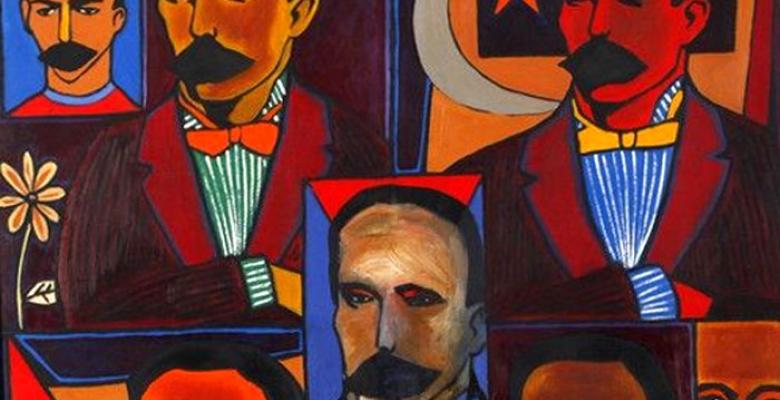José Martí, a symbol of…? (II)
especiales

Last week, we started a series of interviews —as food for thought— on the different perceptions that are today seemingly contradictory to the figure of José Martí. This time, CubaSí offers the second part of the dialogue with Lil María Pichs Hernández.
Graduated in International Relations, this outstanding member of the Martí Youth Movement and specialist of the Martí Program Office describes about the uses of the Apostle's ideology.
In your view, what could be the antidote to stop the manipulations that are sometimes exposed in both social networks and other scenarios, about Martí's thought?
We could attack the consequences by reading him more, using his image more responsibly, and hence taking more interest in the contexts from which certain phrases and photos —especially those most-widely used— come out...
But if we are going to address the causes, it then takes further discussions. There is an ultimate cause: Martí is a symbol of Cuba and he is there to be used by everyone, regardless of the political spectrum. We will never be able to avoid it. Legitimacy is given by the relationship between people and him. The illegitimate uses are those that directly undermine the values that he defended during his lifetime. It depends on how one connects with him and what he represents, even for each generation.
Any example…?
There was a generation in which Marxist scholars tried to prove Martí's socialist identification through the Soviet prism. I think we could speak of a Martí-related socialism. Yes, there are points of convergence between the thought of social justice and its bases in both Martí and Karl Marx, and in other socialists in Europe and the United States. But I don't think that the so-called real socialism is compatible with Marti's idea of a republic.
Everything has its nuances. My point is: in the past, there were groups of thinkers and policy makers for whom it was legitimate to identify him with socialism akin to the Soviet model. At present, we would say that it was a forced alliance, an analysis that, in fact, was not sustainable. But it continues to be legitimate insofar as it has allowed us to question this forced relationship and truly search for the essences that connect Martí with Cuban socialism, beyond the Soviet experience. So it does have a value.
It is a complex conversation, but one that we have to have, thinking, above all, that, beyond the adjectives, being Martí’s follower must be a condition for Cuban and Latin American revolutionaries.
He is also questioned about intimate aspects
Indeed. There is the line of a “womanizer” Martí. If those who accuse him of being a womanizer read Versos Sencillos (Simple Verses), they would accuse him more strongly, because he was a truly passionate man. María Mantilla or La Niña de Guatemala are mentioned, elements of his personal life.
How to coherently insert Marti's ideas in today's analysis?
The legitimate use of Marti's ideas is related to the understanding we make of our own reality. Other uses are born from intellectual laziness, ignorance or the acriticism of taking a phrase from anywhere without verifying it.
It is mandatory to talk about the republic he dreamed of for Cuba; to what extent Fidel and his comrades were able to bring it to fruition. This contributes to shed light on what Martí truly wrote, on what his life was like, on what he, his contemporaries and his followers in later generations, were capable of doing.
Translated by Sergio A. Paneque Díaz / CubaSí Translation Staff













Add new comment